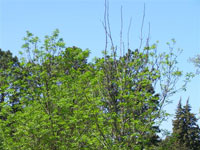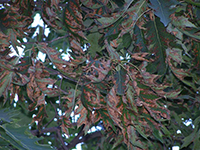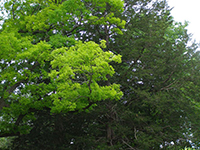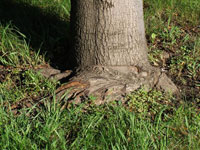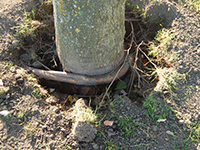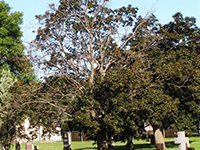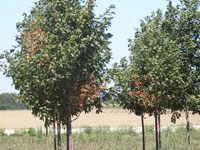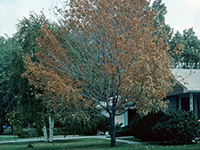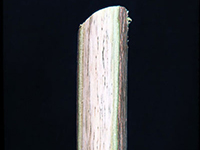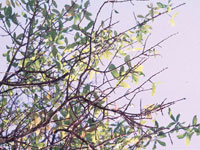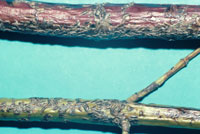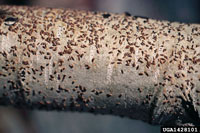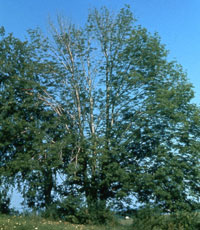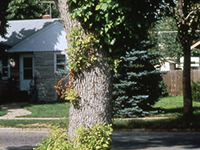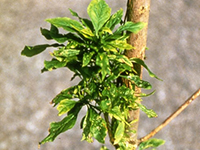Extension > Garden > Diagnose a problem > What's wrong with my plant? > Deciduous Trees > Ash > Leaves yellow and small
Ash > Leaves > Leaves yellow and small
1 of 5
Environmental stress
Drought, compact soils, flood damage, winter injury, other
- Dead branches in the canopy
- Leaves wilt and turn brown at the tips and the margins first, then completely brown
- Many weak young shoots/sprouts at the base of the tree
- Leaves appear drooped or wilted within canopy
- More information on caring for trees and shrubs
2 of 5
Stem girdling roots
- A root circling the trunk of the tree may be seen at the soil line
- The trunk may become sunken in or compressed where it contacts the root
- If the girdling root is below ground the trunk will lack the natural widening or flare at the soil line, but rather will go straight into the earth like a telephone pole
- Affected trees have slow growth, poor color, change color and lose their leaves early in the fall
- Affected trees commonly exhibit water-stress symptoms such as marginal leaf scorch, wilting, sudden leaf fall.
- Affected trees commonly exhibit excessive and abnormal winter damage including true frost cracks and dieback
- More information on Stem girdling roots
3 of 5
Verticillium
Verticillium dahliae
- Leaves are small and yellowed in chronic infections
- Leaves turn brown from the edges and tips, wilt and die in severe infections
- Leaf symptoms are often seen on only one branch in the canopy
- Tan to pale brown streaks often can be seen in the sapwood if the bark is peeled back, appearing as rings or arcs in a cross cut
- Symptoms may develop over a single growing season, or over several years
- More information on Verticillium wilt
4 of 5
Oystershell scales
- Damage occurs during summer
- Feeding causes foliage to yellow
- Twig and branch dieback can occur when branches are heavily infested
- Light to dark brown, elongate, 1/10 to 1/8 inch long, found feeding on branches
- Heavy infestations can completely cover bark
- More information on Oystershell scale
5 of 5
Ash yellows phytoplasma
- Infected plants grow very slowly, and have a sparse thin canopy of leaves
- Leaves are small, yellow, often folded or cupped and grow in clumps along the branch
- Branches die throughout the canopy
- Many weak young sprouts with small yellow leaves arise from the base of the tree
- More information on ash yellows



